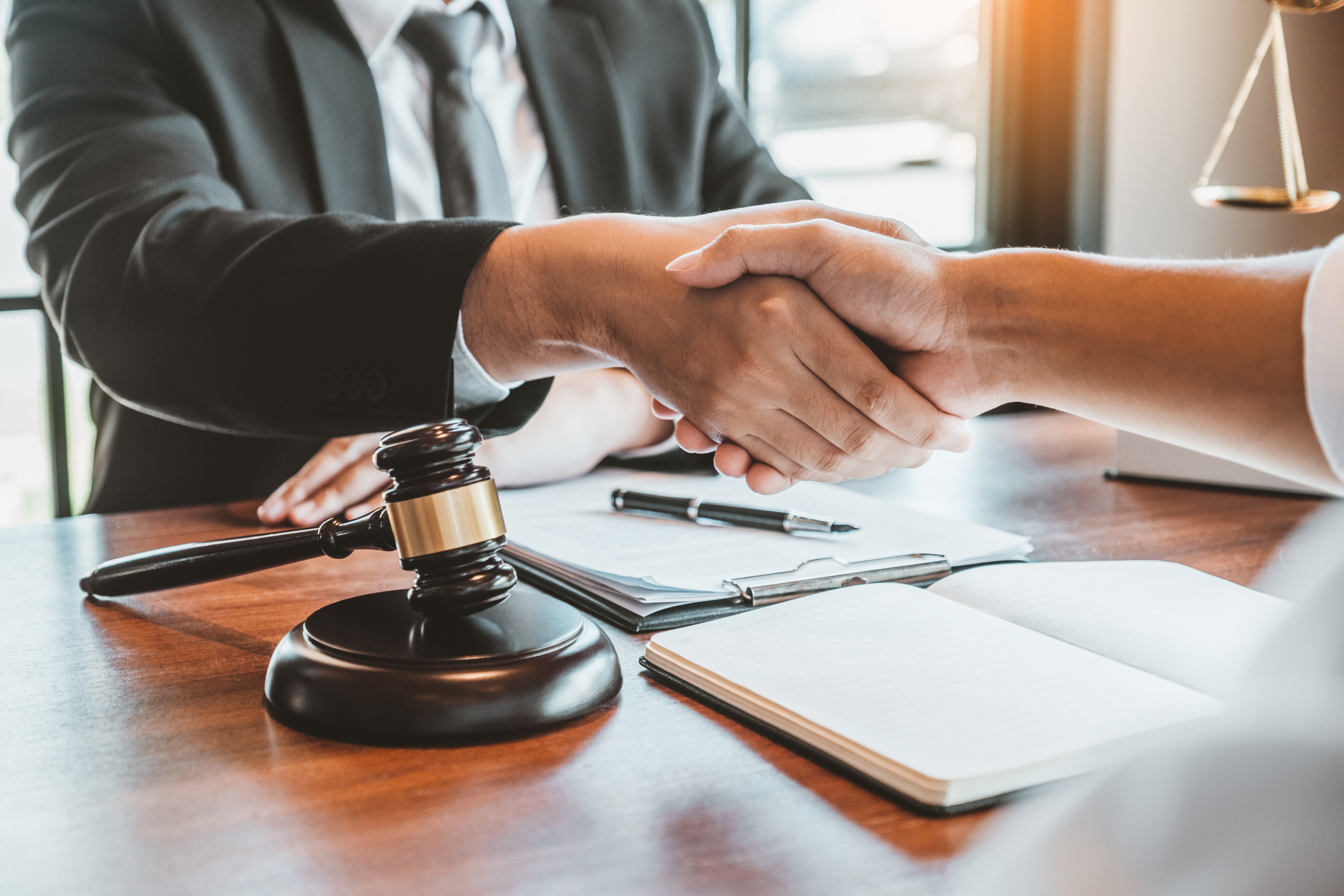When its Time to Hire a Personal Injury Attorney

The world of law is complex and ever-changing, with different rules and regulations depending on geographical location. Depending on the circumstances of a case, an individual may be required to use the services of a lawyer in order to ensure their rights are protected.
Navigating the legal system can be daunting for those who have no experience or knowledge about it; this is why lawyers exist – they help individuals understand their legal needs and guide them through whatever process is necessary.
Lawyers must pass rigorous tests in order to practice law professionally, as well as maintain continuing education requirements throughout their careers. Law practitioners come from all walks of life but ultimately have one common goal: representing clients’ RoundUp Weed Killer Legal Representation interests by providing quality advice that complies with local laws or international standards when needed.
Lawyers specialize in certain areas such as criminal defense, family law, contract disputes, etc., so it’s important for potential clients to research carefully before deciding which lawyer best fits their needs and situation accurately enough that they will get good results from representation provided by said practitioner
Legal documents can often be confusing even if written using plain language terms; therefore working with an experienced attorney who knows how these documents should read according to not only to local laws but also any existing precedents set by other court cases is essential.
Experienced attorneys familiar with the legal system can also help speed up the process of dealing with a case since they know how to effectively move it along when there are delays or obstacles in the way.
Today, we’re going to be taking a look at a specific kind of attorney in detail. That kind of attorney is called a personal injury attorney. Let’s dive into the world of personal injury attorneys and how they can help you.
What is a Personal Injury?
You probably know what a personal injury is. We’ve all been hurt, after all. That being said, today we’re going to be looking at it through the lens of the law of the land, so to speak. A personal injury is defined as any physical or mental injury that occurs due to the negligence of another person or entity. It can include both direct injuries, such as broken bones and indirect injuries, such as stress caused by a traumatic event.
There are many different kinds of personal injuries that one can experience, for example:
- Bruises & Scrapes
- These are common types of minor personal injury sustained in accidents at home or work
- Cuts & Lacerations
- These often require stitches if they’re deep enough; otherwise, they may heal on their own with proper first-aid care
- Burns & Scalds
- Burns come in three levels of severity; first-degree burns only affect the outer layer of skin while third-degree burns reach all layers down to fatty tissue
- Sprains/Strains/Fractures
- These are musculoskeletal injuries most commonly caused by excessive force exerted on joints during sports activities; fractures require medical attention since bones will not heal properly without it
- Internal Injuries
- Organ damage resulting from blunt trauma requires immediate medical attention since organs have a limited ability for self-repair
- Brain Injuries
- These injuries affect cognitive, emotional, and physical functioning; they can be caused by a direct blow to the head or by acceleration/deceleration forces
- Paralysis
- This is the loss of movement in any part of the body due to damage done to nerves, muscles, or joints
In order for an injury sustained from another person’s negligence or misconduct to be classified as a personal injury under law, certain criteria must be met. Firstly, it must have been foreseeable that such an event could occur given what was known about circumstances prior (or at least should have been known).
Secondly, the injury must be directly caused by this negligence or misconduct. Finally, it must have resulted in some kind of physical or mental harm to the injured party.
Personal injuries can occur in a variety of ways; here are some of the most common ones:
- Car Accidents
- These are unfortunately all too frequent and often result from driver negligence (such as texting while driving)
- Slip & Fall Incidents
- Wet floors, broken stairs, or other hazardous conditions that don’t provide adequate warning may cause serious injuries if not addressed promptly
- Defective Products
- Dangerous and defective products product liability cases involve manufacturing defects resulting from either poor design/construction or failure to meet safety standards
- Medical Malpractice
- Negligence on behalf of healthcare professionals resulting in patient injury is a growing concern due to its prevalence
- Workplace Injuries
- Employers have an obligation to maintain safe working conditions for employees and when they fail at this duty it can lead to serious consequences
- Dog Bites
- Animal owners are responsible for controlling their pets to prevent them from attacking others
There are different things that happen after a personal injury, depending on the circumstances. For example, if you’re injured at work, you would likely start off by filing for workers comp benefits, which would provide you with financial assistance while you recover.
If your injury was caused by someone else, then a personal injury lawsuit may be necessary. In some cases, an out-of-court settlement can be reached without having to go to trial.
In any case, involving a personal injury there are certain steps that should always be taken in order to maximize the chance of getting the right outcome for you and your family such as seeking medical attention immediately after being injured and gathering information from witnesses if possible; these steps will come in handy when it’s time to hire an attorney experienced with handling these types of cases but we’ll cover this more.

How to Know if You Need a Personal Injury Attorney
Knowing when to call a personal injury lawyer is a difficult decision to make. After all, you may be feeling overwhelmed by the situation and uncertain of what to do next. However, it’s important that you understand that when hiring an attorney can help protect your rights and ensure that any damages caused by another party are properly compensated for in court or during settlement negotiations if necessary.
Personal injury attorneys have a variety of responsibilities once they’re hired; these include but are not limited to:
- Investigating claims
- Looking into the facts surrounding an incident so as to determine who was responsible for causing it
- Advising clients on their legal options
- Explaining relevant laws related to their case so that they can make informed decisions
- Drafting demand letters
- These outline how much compensation should be sought after in order for both parties involved in a dispute to reach a resolution
- Representation at trial
- Attending court proceedings on behalf of clients when necessary
- Negotiations with insurance companies
- Making sure fair settlements are reached between claimants/defendants and insurers
- Appealing unfavorable rulings
- Filing appeals with higher courts if lower ones render adverse verdicts against them
- Settlement agreements
- Drafting contracts involving the resolution of a dispute
When considering whether or not to hire a personal injury lawyer, it’s important to understand what kind of cases they specialize in. Generally speaking, these attorneys deal with cases involving physical or mental harm caused by another person’s negligence or misconduct; this can include car accidents and other personal injuries caused by someone else.
It’s important that you understand your rights before making any decisions about seeking legal help so that you know exactly what an attorney can do for you in your particular situation.
Personal injury attorneys usually get paid in one of two ways:
- Contingency Fee Agreement
- This is the most common payment option and involves an attorney taking a portion of any damages received by their client as payment for services rendered
- Hourly Rate
- The lawyer will charge a certain amount per hour worked; this option may be more suitable if there’s no chance of receiving monetary compensation from the other party involved in a dispute
- Flat Fee Arrangement
- A single lump sum is paid upfront for legal services provided regardless of how long it takes to resolve them
- Retainer Agreements
- Clients are charged upfront for certain tasks (e.g., drafting documents) with additional fees due when those tasks have been successfully completed
It’s important to note that personal injury lawyers typically operate on contingency fee agreements, meaning that they won’t receive any money unless you win your case; this helps ensure that all parties involved can focus on reaching a favorable outcome without worrying about legal bills piling up during proceedings.
Additionally, these attorneys tend to work on a “no win, no fee” basis; this means that you won’t owe them anything if they don’t successfully help you get compensated for your damages.
Getting the Right Person for the Job
When deciding whether or not to hire a personal injury lawyer, it’s important to weigh the pros and cons of doing so carefully. While these attorneys can be very helpful in ensuring that you get the compensation you deserve, it’s important to remember that their services come with a cost; this means that if your case doesn’t result in any damages being awarded, then all money spent on legal fees will have been for naught. It’s ultimately up to each individual as to whether hiring an attorney is worth it or not but having a good idea of what these lawyers can do for you should help make the decision easier.






